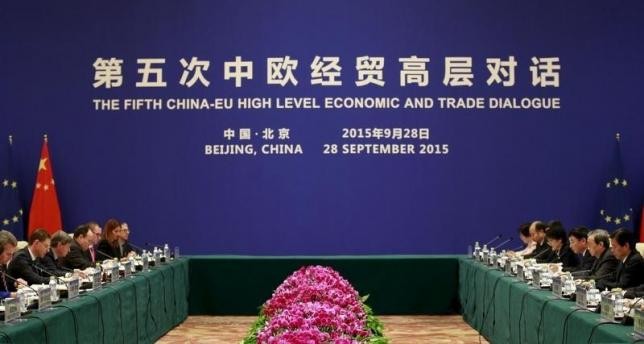In consideration of China's efforts for market-driven economic reforms and the importance of the China-EU relations, a global economic and policy analyst is urging the European Union (EU) to grant China market economy status (MES) as soon as possible, the Xinhua News Agency reported.
"In Europe's view, the long-term benefits of China's MES would seem to outweigh the short-term costs," Dan Steinbock, the founder of consulting firm Difference Group, said in an article published by Brussels-based online newspaper EUobserver.
Steinbock also served as research director of International Business at the India China and America Institute and visiting fellow at China's Shanghai Institutes for International Studies and Singapore's EU Center.
Steinbeck said that since China's transition to consumption and innovation is expected to create new opportunities for EU companies, granting MES would strengthen EU's long-term relationship with China as well as support its quest for Chinese capital.
According to a 2001 agreement that EU and China signed on China's accession to the WTO, the EU, a WTO member, has to decide whether to grant China MES by December.
According to the report, some lobbyist groups in Brussels claim that granting MES to China will endanger the European labor market, especially the steel sector, and also weaken the EU's trade defense against imported Chinese products.
"But times are changing. Chinese growth no longer relies on net exports, but increasingly on consumption and services," Steinbock said. "Even more importantly, China has committed to reducing excess capacity drastically, even if it will require lay-offs of some two million employees in steel and coal sectors in the next three years."
The report said that most of those opposed to the MES are from struggling industries in southern Europe that are involved in ceramics, textile and steel.
"Indeed, much of the more competitive northern Europe--including the U.K., the Netherlands and Nordic countries--does support China's MES," he said.
Steinbock also commended China's efforts on economic reforms.
"Beijing, in contrast to Brussels, has argued that the state's presence in the economy has shrunk drastically in the past 15 years. Conversely, some Chinese observers add that the role of state has actually increased in several EU economies," Steinbock said.
The expert also noted that in terms of public sector size, the Eurozone average of 50 percent is far higher compared to that of the U.S., which is 35 percent, and twice as large as that of China at 25 percent.
"Moreover, after the global crisis, China has opted for market-driven structural reforms, which continue to linger in the U.S., Europe and Japan," Steinbock said, adding that the issue of Chinese competitiveness is more about innovation hubs than cheap prices. He also noted that China, on the average, is spending higher on research and development than the EU.
Steinbock said the decision for the EU to grant China MES is more of a political and legal issue than an economic one.
The report said that the arguments against the granting of MES to China is similar to what the U.S. said when it opposed the Asian Infrastructure Investment Bank (AIIB) about a year ago.
Currently, China's status as a market economy has been recognized by more than 80 economies that included Russia and Brazil, as well as such advanced economies as Australia, New Zealand, Switzerland and Singapore, the report said.






















